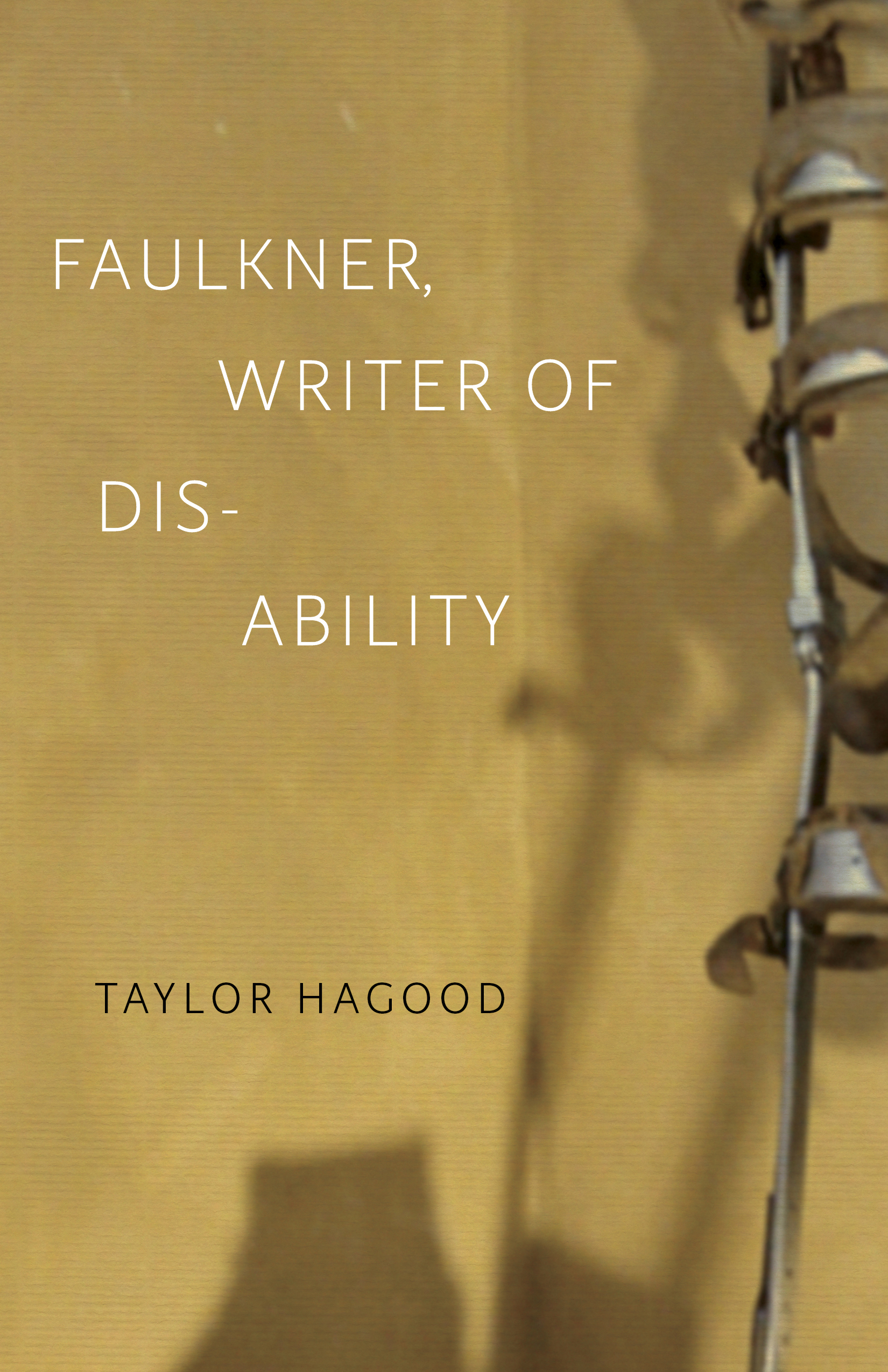Hagood Wins Holman Award
Scholar Wins Literary Prize for Groundbreaking Study of Disability in the Works of William Faulkner
Taylor Hagood, Ph.D., associate professor of English, was awarded the prestigious C. Hugh Holman Award by the Society for the Study of Southern Literature (SSSL) at its biennial conference on March 12, 2016, in Boston, MA, for his book, Faulkner, Writer of Disability (LSU Press, 2014). The SSSL awards the prize annually for the best book of literary scholarship or literary criticism in the field of southern literature. Hagood's book is the first to consider the role of impairment in the works of William Faulkner, the Nobel Prize–winning novelist of the American South.
Hagood completed much of the research and writing while a Fulbright Professor in the Amerika Institut at Ludwig-Maximilians-Universität in Munich in 2009-2010. Literary criticism with a heavy biographical strain, the book explores how William Faulkner's personal and familial experiences with disability find their way into his novels, as well as how the writer disables novelistic form itself. Faulkner, said Hagood, is "a writer who instead of following the tacitly and somewhat invisibly agreed upon rules of novelistic structure, de-forms fiction, unbalances narrative." Drawing from theories of disability studies, which critique normalcy and question compulsory able-bodiedness, Hagood's groundbreaking study challenges the conventions of ableism and normality in scholarly writing by making form a central topic. He de-forms literary criticism by experimenting with unconventional style in the book, presenting the chapters, or "parts of the body," as he calls them, as historical biography, screenplay, email, and sensational horror.
Hagood is a native of Ripley, Mississippi, the ancestral home of the Faulkner family, and has had a lifelong connection to and fascination with the revered writer. He has also published Critical Insights: The Sound and the Fury (2014) and Faulkner's Imperialism: Space, Place, and the Materiality of Myth (2008). His introduction to the interdisciplinary field of disability studies came in 2005 when he heard a major disability studies theorist, Rosemarie Garland-Thomson, speak at a conference. He said, "It changed my world and has led me down a really interesting path. I started doing the research in that field, and I thought, how could this open up Faulkner? And what ways can it do it?"
Just as Faulkner illuminated social issues, such as race relations, in unique ways among American writers of his generation, Hagood shines a light on how disabled bodies and minds are devalued and "judged with very important things at stake—everything from labor to being able to sit in a certain kind of seat that's designed for a normal body, to even decisions of life or death."
Hagood said he was overwhelmed when he received the news that the book won the Holman Award and was quick to credit Louisiana State University Press for shaping the final product and also to the field of southern literature. He said, "What I really like about my field is that it's very self-reflexive. Given the many painful aspects of the South's history and the problematic politics of the field's past, which often focused on Confederate, neo-Confederate, white, and patriarchal viewpoints and literature only, the field now seeks to understand every facet of the region by examining the stories of multiple groups, such as African Americans and Asian Southerners, and the interconnectedness of the people of its history. It's a field that's worked very, very hard in my generation to understand the South as a plurality and to question its own assumptions and methodologies. So I feel very honored. The men and women in this field are people I respect incredibly."
